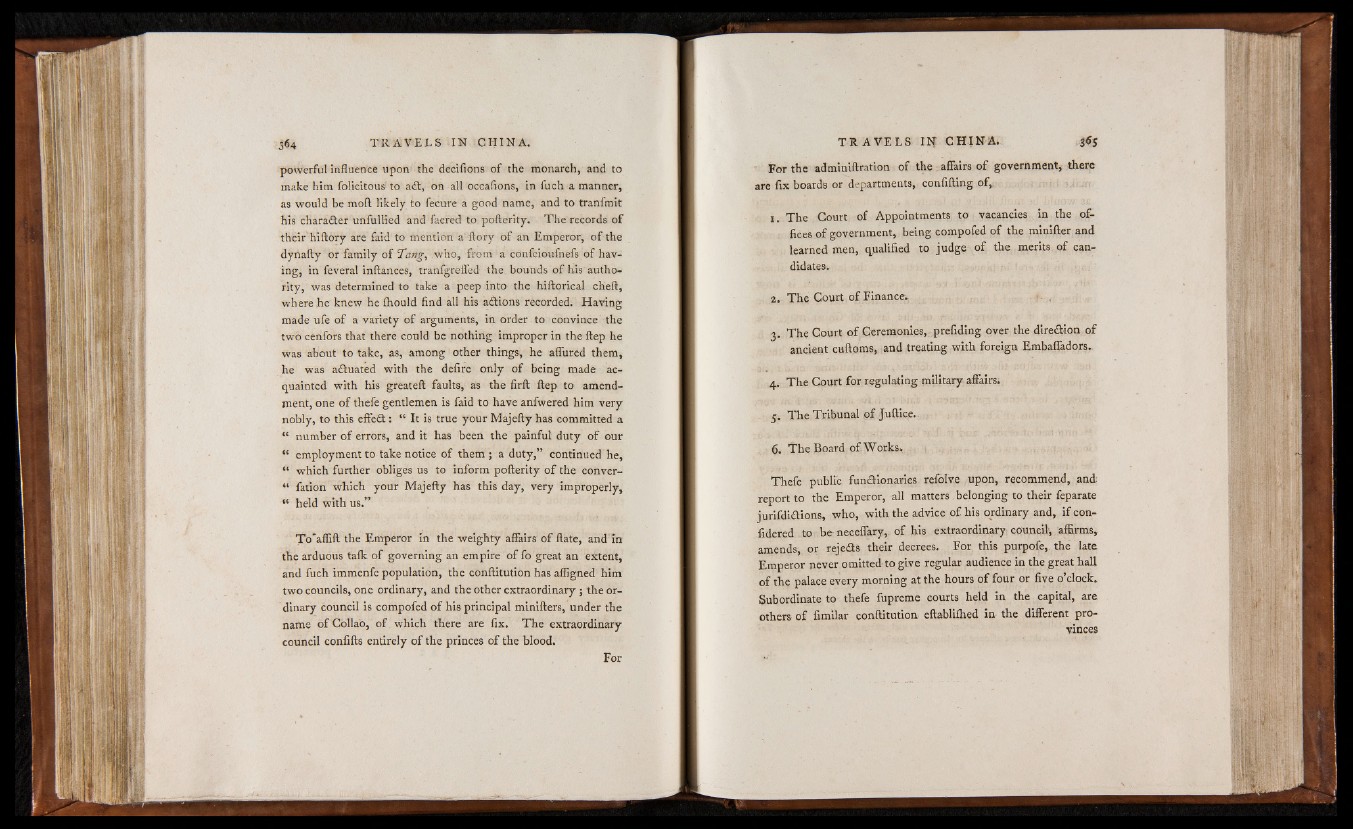
powerful influence upon the decifions o f the monarch, and to
make him folicitous: to adt, on all occaftons, in fuch a manner,
as would be moil likely to fecure a good name, and to tranfmit
his character unfullied and facred to pofterity. The records o f
their hiftory are faid to mention a ftory o f an Emperor, o f the
dynafty or family o f Tang, .who, from a confcioufnefs of having,
in feveral inftances, tranfgrelfed the bounds o f his authority,
was determined to take a peep into the hiftorical cheft,
where he knew he ihould find all his a ¿lions recorded. Having
made ufe o f a variety o f arguments, in order to convince the
two cenfors that there could be nothing improper in the ftep he
was about to take, as, among other things, he affined them,
he was adtuated with the defire only o f being made acquainted
with his greateft faults, as the firft ftep to amendment,
one o f thefe gentlemen is faid to have anfwered him very
nobly, to this efFedt: “ It is true your Majefty has committed a
“ number o f errors, and it has been the painful duty o f our
“ employment to take notice o f them ; a duty,” continued he,
“ which further obliges us to inform pofterity o f the coiiver-
“ fation which your Majefty has this day, very improperly,
“ held with us.”
To'aflift the Emperor in the weighty affairs o f ftate, and in
the arduous talk o f governing an empire o f fo great an extent,
and fuch immenfe population, the conftitution has afligned him
two councils, one ordinary, and the other extraordinary ; the ordinary
council is compofed o f his principal minifters, under the
name o f Collao, o f which there are fix. The extraordinary
council confifts entirely o f the princes o f the blood.
For
For the adminiftration o f the affairs o f government, there
are fix boards or departments, confifting of,,
1 . The Court o f Appointments to vacancies in the offices
of government, being compofed o f the minifter and
learned men,, qualified to judge o f the merits of candidates
2. The Court o f Finance.
3. The Court o f Ceremonies, prefiding over the diredtion o f
ancient cuftoms, and treating with foreign Embaifadors-
4. T he Court for regulating military affairs;
5. The Tribunal o f Juftice.
6. The Board o f Works,
Thefe public fundtionaries refolve upon, recommend, and
report to the Emperor, all matters, belonging to their feparate
jurifdidlions, who, with the advice o f his ordinary and, ifcon -
fidered to be neceffary, o f his extraordinary council, affirms,
amends, or rejedts their decrees. For this purpofe,. the late
Emperor never omitted-to give regular audience in the great hall
o f the palace every morning at the hours o f four or five o clock.
Subordinate to thefe fupreme courts held in the capital, are
others o f fimilar conftitution eftablifhed in the different provinces